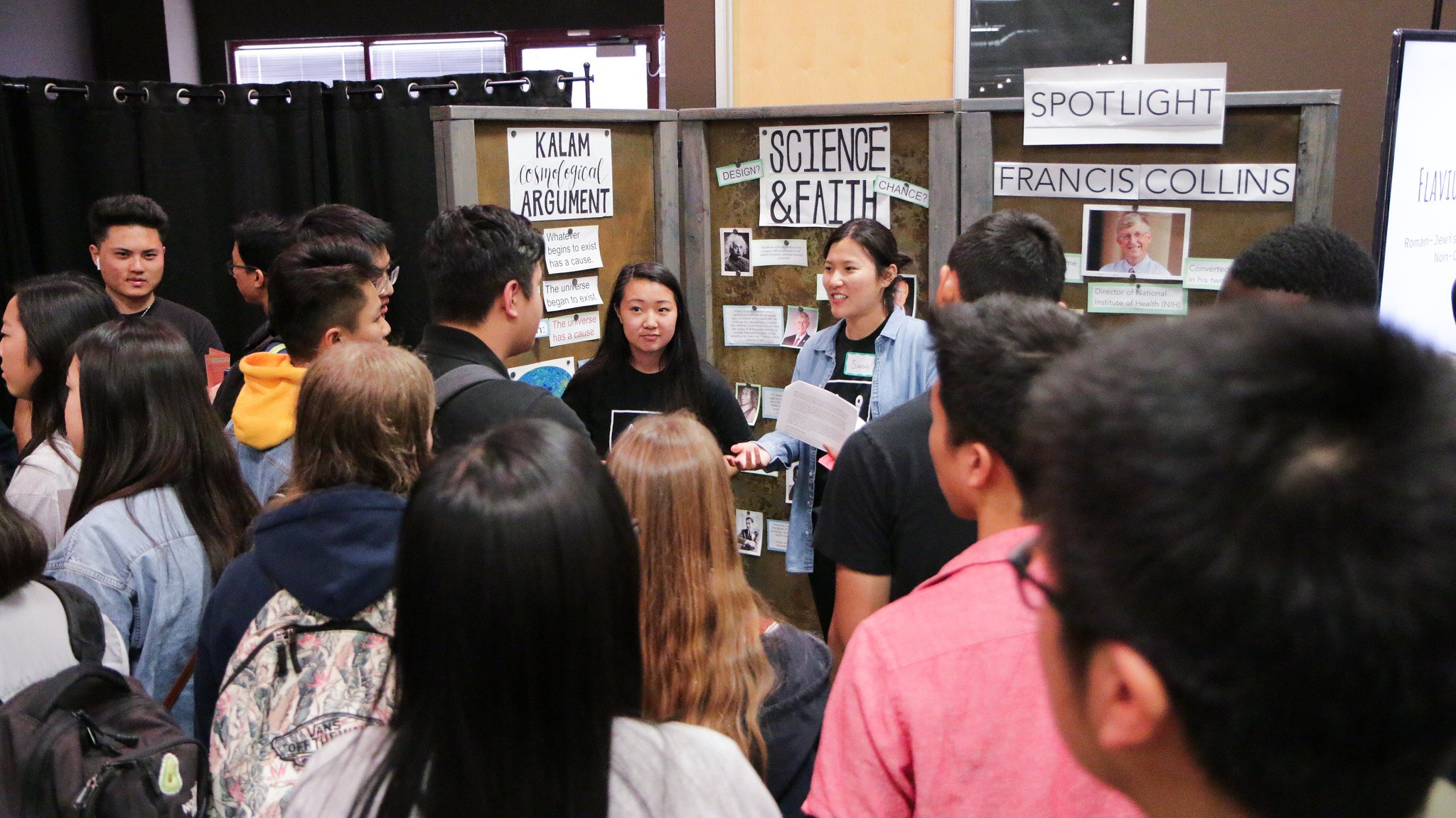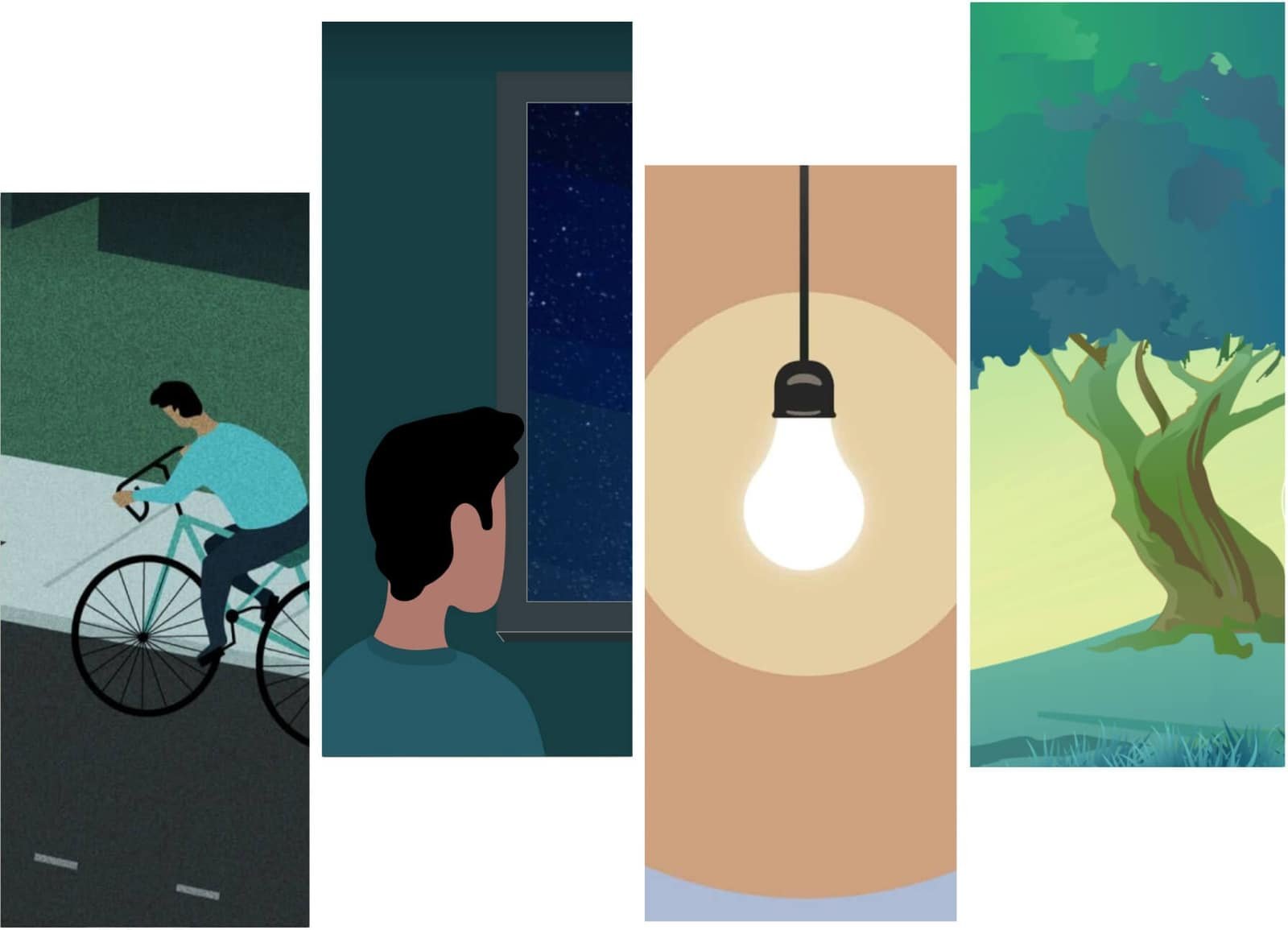
TRAINING & APOLOGETICS
Have Questions about God, Christianity or the Purpose of Life?
You’ve come to the right place!
Course 101
Ever wonder about the bigger questions of life like “Who am I?", “What is the purpose of life?,” or “Is Jesus real?” Learn the intellectual foundations of Christianity through Course 101, an interactive site that answers these questions and more. Plus if you want to do it with a mentor you can sign to get one here!
Apologetics Training
In addition to Course 101, we equip students to be able to defend their faith by arming them with answers to popular apologetics questions! Some sample questions and answers are shown to the right!
-
Yes, too many for us to go into right here! Here are just a few that we cover in AYM:
The Regularity of Nature
The Clue of Beauty
The Insufficiency of Evolution as a Theory of Everything
-
The view that good and bad are only relative is called moral relativism. There are a number of flaws that can be read more about on this website, but they are summarized here:
If relativism is true, no one can ever be accused of doing anything wrong.
You have no basis to complain about the problem of evil.
Relativists can’t place blame or accept praise.
If moral relativism is true, you can never improve your morality.
In relativism, you cannot promote the virtue of tolerance.
-
Christianity makes claims that are diametrically at odds with atheism and other world religions. For example, Christians believe that God exists, and if that is true, then atheism cannot also be true. Christians also believe that Jesus Christ is the Son of God, and if that is true, other religions that don’t affirm this cannot be true. In short, it does not make logical sense to hold the position that multiple religions can be true when they hold contradictory claims.
You can learn more about the topic here.
-
No, it’s not actually! There are a number of facts that are historically attested to by both Christian and non-Christian historians alike:
Jesus died on the Cross and was buried
Jesus’ tomb was found empty
The disciples claimed to have seen the risen Jesus, and were willing to even die for this claim
The early church grew exponentially after Jesus’ reported resurrection
There are a number of alternate theories floating around, such as the Swoon Theory, the Stolen Body Theory, and the Legendary Accretion Theory, but none of these theories are able to explain all four of the above historical facts. You can learn more about this question here!
-
The common argument thrown out by atheists goes something like this:
If God is all-powerful then he can create any world that he wants.
If God is all-loving then he prefers a world without suffering.
Suffering exists.
Therefore, God is either not all-powerful or not all-loving.
William Lane Craig goes into a much more in-depth answer here, but in short, he says:
The first premise is not entirely true: God cannot create a world that actualizes the logically impossible.
This is not necessarily true. It’s possible that God could use suffering to bring about a greater good, or that God values human free will over lack of suffering.
Resource Videos
Reason for Faith: Scientific Apologetics
Angel Shieh, M.D. Ph.D.
If God, Why Evil?
Dr. Sean McDowell
Problem of Pain and Suffering
James Kim
How Can I Believe in a God I Can’t See?
Jisup Hong, Ph.D.
Case for the Resurrection
Dr. William Lane Craig
FAQs About Christianity
Pastor Daniel Kim, M.A. in Theology
Other Awesome Resources
Dr. Sean McDowell
AYM partner & friend. Apologist & Professor at Biola University, Talbot School of Theology.
Reasonable Faith
William Lane Craig
Professor at Houston Baptist University
& Talbot School of Theology
Impact 360 Institute
Impact 360 is a worldview university that focuses on training high school students to defend and reason through their faith




